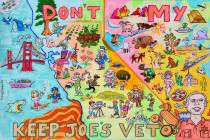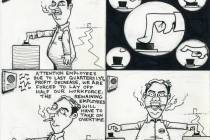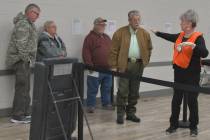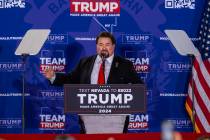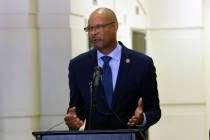Social Security numbers become riskier
Last week the U.S. Office of Personnel Management released an investigation into two serious hacks that were carried out by unknown persons in May and April.
The feds are blaming the hacks on China, though blaming technology leaks on China has become so common that it looks more and more like the excuse du jur when federal investigators canât find a conclusive answer.
Anyway, one of the findings of Personnel Management is that the Social Security numbers of 21.5 million people in the United States are now in the hands of hostiles. There is a major industry out there that sells Social Security numbers.
This is perhaps the least surprising theft in U.S. history. For decades, various experts have been warning of the dangers of using the Social Security number as a universal identifying numeral â and of having any universal identifying numerals. When he ran for president, Kansas Gov. Alf Landon issued such a warning. That was 79 years ago.
In 1971, the Associated Press reported, "The Social Security Administration ... is concerned on several grounds with what looks like an irreversible evolution of its nine-digit identified into a general recordkeeping pool for private as well as public purposes." That was 44 years ago.
In 1993, the Congressional Office of Technology Assessment reported, âIt allows outsiders (including private detectives, computer hackers, or other strangers) to move from database to database, from credit bureau to insurance company to grocery store to publisher, to find out detailed marketing, financial, and medical information about an individual, so that a very detailed dossier on the individual can be created.â That was 22 years ago.
But Congress did nothing. At one time, the Social Security card read, âFor Social Security purposes â not for identification.â But in 1943, the feds gave their agencies permission to start using the Social Security number for new identification systems. In 1961, Internal Revenue started using it. The legend on the card was amended to âFor Social Security or tax purposes ânot for identification.â
Congress knew the risks, but under the whip of business gave conflicting signals. The Privacy Act of 1974 put a moratorium on new uses of the Social Security number. But just two years later the Tax Reform Act of 1976 (foolish actions are always done in the name of reform)gave state and local tax, welfare and motor vehicle agencies permission to use the number. In Nevada, the bill passed at the 1969 legislature putting the Social Seucirty number on driver's licenses bore the name of Assemblymember Harry Reid.
In the 1970s, an officer of the American Civil Liberties Union of Nevada told me the ACLU had more or less given up on fighting the Social Security number because it had gone so far.
When computers became more sophisticated and smaller, the Social Security number became more of a threat. There was the stalker who bought the Social Security number of Amy Boyer off the Internet and then used it to find her and kill her in 1999.
The warnings kept coming, and Congress kept ignoring them. Barry Goldwater once said he didnât care if it helped law and order, it was a threat to privacy.
"Any time it (Social Security numbers harvested from credit records) happens, it's a significant problem because credit reports contain such private information," said David Medine of the Federal Trade Commission in 1992.
U.S. Court of Appeals for the Fourth Circuit/1993: âSuccinctly stated, the harm that can be inflicted from the disclosure of a (Social Security number) to an unscrupulous individual is alarming and potentially financially ruinous.â
Robert Boyd/Knight Ridder Newspapers in 1994 wrote "Next time you're asked to give out your Social Security number, stop. You're taking a terrible chance with your privacy and your wallet."
Business makes use of the Social Security number for credit, insurance, health records, and on and on. And Congress sees its role as servicing business.
When the hundreds of thousands of Social Security numbers being trafficked increases into the millions, will Congress put a stop to the Social Security number and any other universal identifier?
Given a choice between protecting the public or inconveniencing business, what will its answer be?
Dennis Myers is an award-winning journalist who has reported on Nevada's capital, government and politics for several decades. He has also served as Nevada's chief deputy secretary of state.







